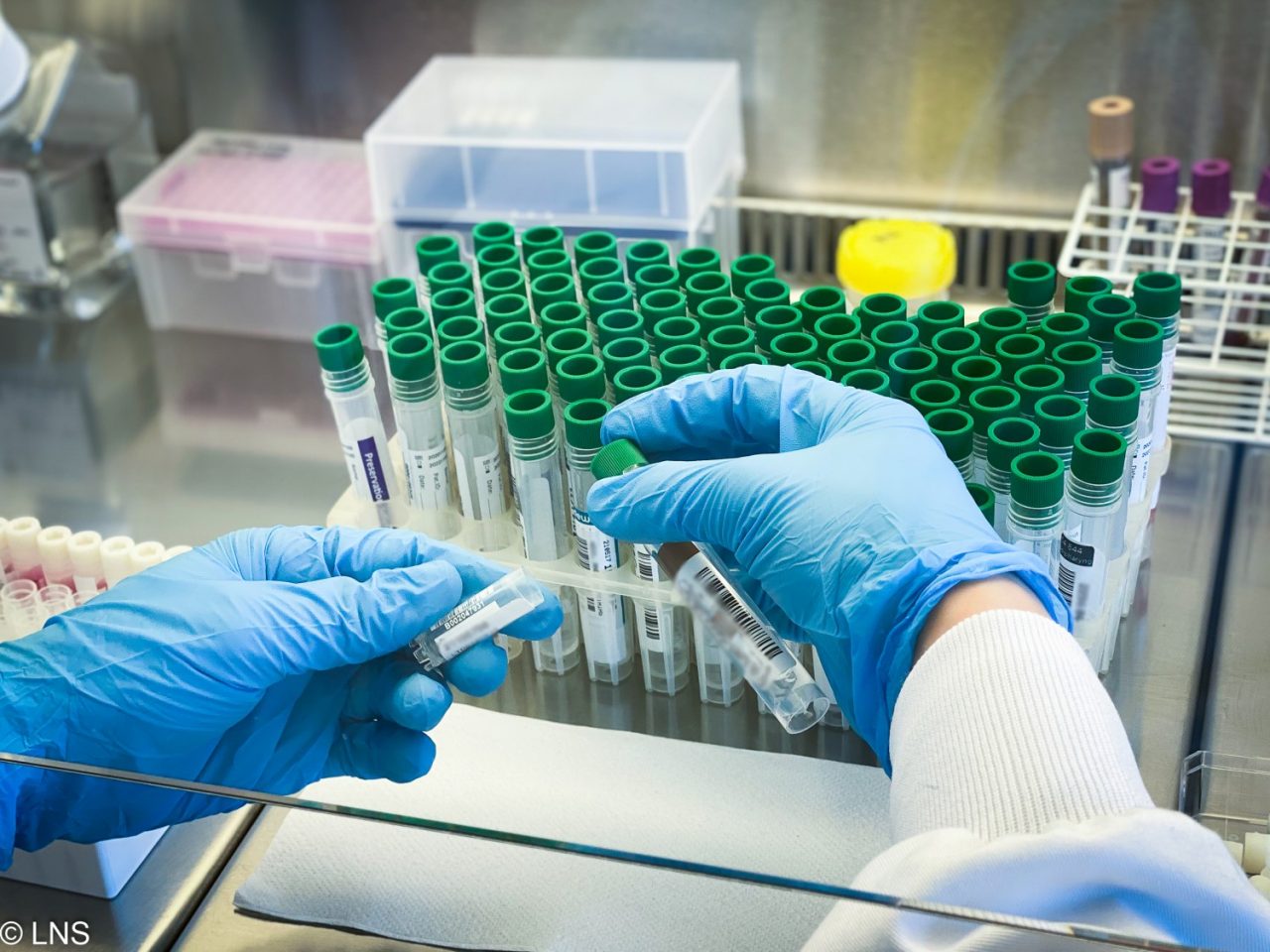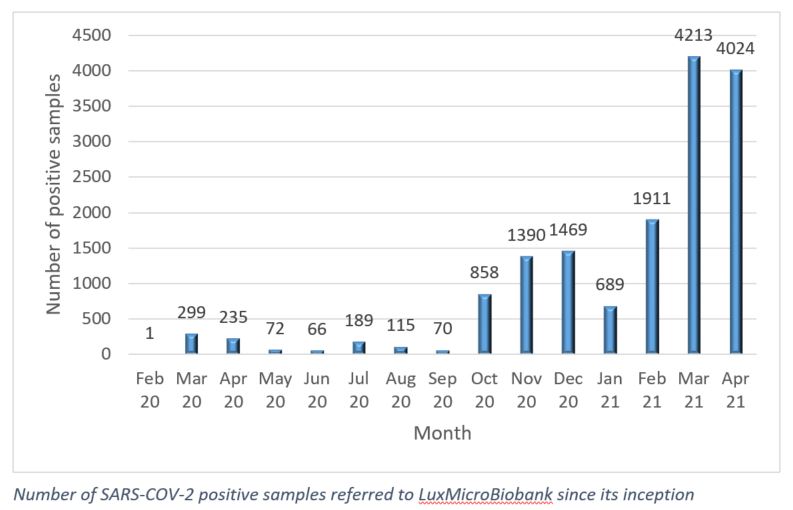- The Laboratory
- Organization
- Departments
- Jobs
- Analysis book
- Contact
- News
- Publications
- Download



One year after its creation, LuxMicroBiobank has exceeded the 15,000 mark for positive SARS-CoV-2 samples. As of mid-May 2021, the biobank, located at the Laboratoire national de santé (LNS), contained nearly 17,000 positive samples.
LuxMicroBiobank was launched in May 2020, as the COVID-19 pandemic flagged the importance of rapid and broad sharing of emerging pathogens for effective characterization, surveillance, and the timely development of medical interventions, notably diagnostics and therapeutics, as Dr Tamir Abdelrahman, head of the LNS’s Microbiology department, explains:
Quick launch and rapid evolution
“Since the first identification of SARS-CoV-2 in Luxembourg, there has been a plan to establish a dedicated microbial biobank to ensure storage of clinical samples in a timely manner, in order to facilitate the rapid characterization of the virus either via sequencing or virus culture. LuxMicroBiobank was then launched in May 2020 to host all positive SARS-CoV-2 samples and to serve as a resource for validation of new diagnostic methods in Luxembourg, by offering access to anonymised clinical samples to all partners based on public health needs.”
Nicolas van Elsué, the coordinator of LuxMicroBiobank, highlights its rapid evolution: “We introduced an automated workflow to maintain the traceability of submitted samples, covering sample processing from reception to storage as well as the supporting database, with full characterization of each sample. Currently, we are developing further storage capacity to establish an international hub for emerging pathogens in a state-of-the-art biobanking facility dedicated to microbial pathogens.
Rapidly increasing number of samples
Dr Trung Nguyen Nguyen, head of the Microbiology department’s virology service, adds: “In January 2021, the LNS was appointed National Reference Laboratory for acute respiratory infections. The number of positive samples referred to the LNS has since then increased dramatically, as partner laboratories started referring all positive samples to the LNS for sequencing. This has enabled us to understand the variants in circulation and inform the health authorities of the evolution of the pandemic. Moreover, the stored samples will constitute a major resource for research and development in this field.”
